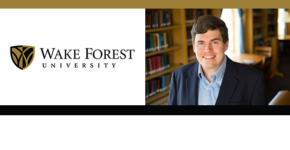 Lying may not be as widespread as long thought.
Lying may not be as widespread as long thought.
Christian Miller, A. C. Reid professor of philosophy at Wake Forest University, discusses why a small group may be doing most of the work.
Christian B. Miller is the A. C. Reid Professor of Philosophy at Wake Forest University. He was most recently the Director of the Honesty Project (honestyproject.philosophy.wfu.edu/), funded by a $4.4 million grant from the John Templeton Foundation. In recent years he was the Philosophy Director of the Beacon Project (www.moralbeacons.org), funded by a $3.9 million grant from Templeton Religion Trust, and the Director of the Character Project (www.thecharacterproject.com), funded by $5.6 million in grants from the John Templeton Foundation and Templeton World Charity Foundation. He is the author of over 120 academic papers as well as Moral Psychology with Cambridge University Press (2021) and four books with Oxford University Press, Moral Character: An Empirical Theory (2013), Character and Moral Psychology (2014), The Character Gap: How Good Are We? (2017), and Honesty: The Philosophy and Psychology of a Neglected Virtue (2021). He is a science contributor for Forbes, and his writings have also appeared in The New York Times, Wall Street Journal, Dallas Morning News, Slate, The Conversation, Newsweek, Aeon, and Christianity Today. Miller is the editor or co-editor of Essays in the Philosophy of Religion (OUP), Character: New Directions from Philosophy, Psychology, and Theology (OUP), Moral Psychology, Volume V: Virtue and Character (MIT Press), Integrity, Honesty, and Truth Seeking (OUP), and The Bloomsbury Handbook of Ethics (Bloomsbury Press).
How Often Do You Lie?
How often do people lie? Are lies more prevalent on text or email than on the phone or in person?
An emerging body of empirical research is trying to answer these questions, and some of the findings are surprising.
Start with the frequency of lies. The classic study was conducted by psychologist Bella DePaulo in the mid-1990s. She found that a group of community members averaged one lie per day, while a group of students averaged two lies per day. This result led to an assumption among many researchers that lying is commonplace.
But averages do not describe individuals. It’s possible that some people lie voraciously and others lie very rarely.
In an influential 2010 study, this second scenario is indeed what Michigan State University communication researcher Kim Serota and his colleagues found. Out of 1,000 American participants, 59.9% claimed not to have told a single lie in the past 24 hours. Of those who admitted they did lie, most said they’d told very few lies. Half of all the lies came from just 5.3% of the participants. So lying tends to be rare, except in the case of a small group of frequent liars.
What if we don’t just consider face-to-face interactions, but introduce some distance by communicating via text, email, or the phone?
Even then, David Markowitz at the University of Oregon still found fairly low percentages of lying for his participants: 7.8% of social interactions over email contained lies, 8.2% over text, 8.6% over social media, 9.6% face-to-face, 11.8% over the phone, and 12.3% over video chat.
So lying seems to happen rarely for many people, even toward strangers and even via social media and texting. Where people need to be especially discerning, though, is in identifying – and avoiding – the small number of rampant liars out there.
Read More:
The Character Gap: How Good Are We? (Philosophy in Action): 9780190264222: Miller, Christian: Books
